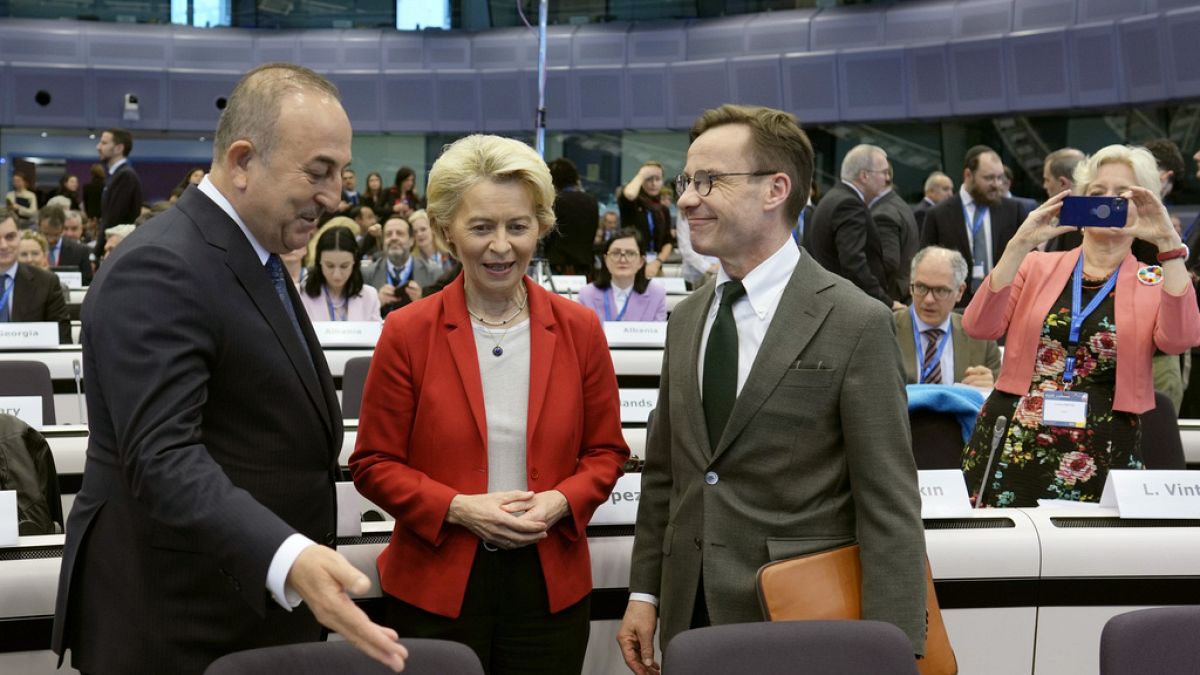The European Union and its international partners gathered in Brussels on Monday seeking to raise money for Turkey and Syria in the aftermath of the earthquake.
International donors have pledged to provide €7 billion in aid to people in Turkey and Syria affected by the devastating February 6 earthquake, Swedish Prime Minister Ulf Kristersson announced.
"I am proud to announce that we will see substantial additional support. The commitments now total seven billion euros," said Kristersson, whose country holds the six-month presidency of the Council of the EU, after an international donor conference for earthquake victims.
The European Union and its international partners gathered in Brussels Monday seeking to raise money for Turkey and Syria in the aftermath of the earthquake that devastated parts of both countries last month.
The magnitude 7.8 earthquake on Feb. 6 killed more than 52,000 people — the vast majority in Turkey. More than 200,000 buildings in Turkey either collapsed or were severely damaged.
The International Rescue Committee, an aid group responding to humanitarian crises, said the situation in the region remains critical and urged donors to ensure that the U.N.’s appeal for Turkey and Syria — calling for $1 billion and $397 million respectively — is fully funded.
“The people affected by this devastating earthquake are relying on donors meeting in Brussels to step up this week,” said Tanya Evans, the IRC’s Country Director in Syria. "They need to ensure that funding is available for life-saving items including food, shelter, warm clothes and clean water, as well as support to the already weak healthcare system including the provision of medicines and medical equipment. If they fail to do so, the most vulnerable will pay the price.”
Survivors of the earthquake in rebel-held northwest Syria have received very little assistance because of deep divisions exacerbated by the country’s 12-year war. The EU said 15.3 million Syrians of a population of 21.3 million already required humanitarian assistance before the earthquake struck.
The bloc has been providing humanitarian aid to Syria since 2011 and wants to step it up. But the bloc does not intend to help with reconstruction in the war-torn country, with EU sanctions against the Syrian regime of President Bashar Assad in place due to its continued crackdown against civilians.


